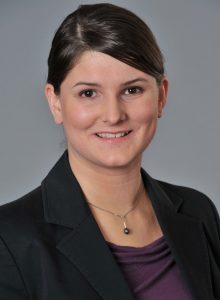Inga Winkler, lecturer at the Institute for the Study of Human Rights at Columbia University, will present “Water and Sanitation in the 21st Century: A Human Rights Perspective on Domestic and International Challenges” at 7 p.m. Thursday, September 28, in the Prairie Room of the Bone Student Center.
Water challenges are increasingly acknowledged and issues like water scarcity, water conflicts, and the looming potential of water wars are on the forefront of researchers’ minds. However, the world is not running out of water, and there is more than enough water to meet everyone’s basic needs. The question of scarcity is largely a question of social, economic, and political drivers and priority-setting in allocation.
Winkler will shift the focus of water challenges by addressing some of the issues that are usually neglected: the sanitation crisis and the lack of access to water and sanitation not only abroad, but in marginalized communities in the United States. The United Nations officially recognized the human rights to water and sanitation in 2010, and this talk will explore what the human rights framework can offer to address the existing challenges.
Winkler’s research agenda is held together by her interest in socio-economic rights, development, gender, social justice, and substantive equality. Her policy experience in recent years has allowed her to follow discussions at various levels from global processes to local challenges which is reflected in her research approaches.
As the director of undergraduate studies for the human rights program, Winkler teaches the senior seminar in human rights and international human rights law, and has developed new courses on socio-economic rights and United Nations human rights bodies. She also supervises graduate student research focused on her areas of expertise.
The talk is part of the Illinois State University Speaker Series. The series seeks to bring innovative and enlightening speakers to the campus with the aim of providing the community with a platform to foster dialogue, cultivate enriching ideas, and continue an appreciation of learning as an active and lifelong process. All talks are free and open to the public.


